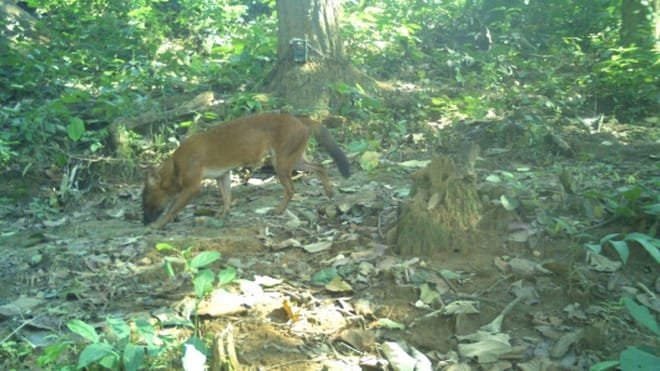Guwahati, Jun 28: The Asiatic wild dog, commonly known as the dhole (Cuon alpinus), has made a confirmed return to Assam’s Kaziranga-Karbi Anglong Landscape (KKAL) after years of absence, according to a study by the Wildlife Institute of India (WII).
Once thought to be locally extinct in the region, the presence of the elusive carnivore has been verified through camera trap images captured in the Amguri corridor. The study, published in the Journal of Threatened Taxa, presents the first photographic evidence of dholes in this part of Assam.
The survey covered four major wildlife corridors—Panbari, Haldhibari, Kanchanjuri, and Amguri—within the 25,000 sq. km expanse of KKAL, a critical part of the Indo-Burma Biodiversity Hotspot. The dhole was recorded six times in the Amguri corridor, close to National Highway 37 and nearby human settlements.
Researchers emphasized the significance of these forest corridors in promoting wildlife connectivity and aiding species recovery. The last confirmed sighting of the dhole in Northeast India was reported from Nagaland in 2011.









